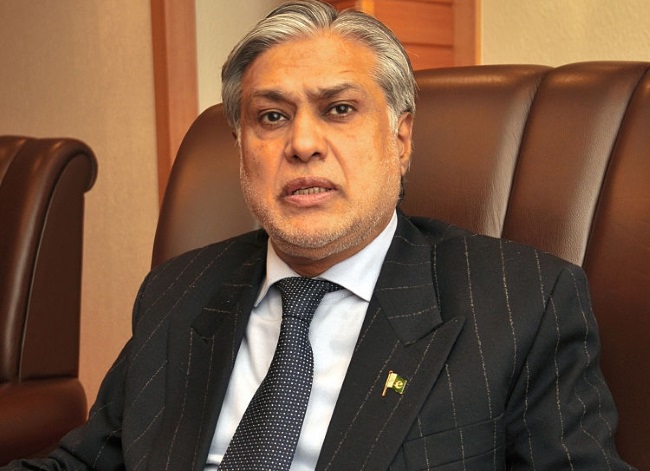Deputy Prime Minister and Foreign Minister Ishaq Dar’s two-day trip to Bangladesh has been described by Pakistan’s Foreign Office (FO) as a “significant milestone” in bilateral relations, marking the first visit by a Pakistani foreign minister to Dhaka in 13 years.
Dar, accompanied by Commerce Minister Jam Kamal Khan, arrived in Dhaka on Saturday and immediately engaged with a cross-section of Bangladesh’s political leadership. On the opening day, he met delegations of three political parties — the National Citizens Party (NCP), Jamaat-i-Islami, and Bangladesh Nationalist Party — before attending a reception hosted by Pakistan’s High Commissioner Imran Haider. At the event, Dar emphasized Pakistan’s fraternal sentiments towards the Bangladeshi people, rooted in shared traditions, Islamic heritage, social norms, and literary expressions.
On Sunday, Dar held a breakfast meeting with Bangladesh Commerce Adviser Sheikh Bashiruddin, joined by senior finance and trade officials. The gathering was also attended by Bangladesh Investment Development Authority Chairman Chowdhury Ashik Mahmud Bin Harun, Bangladesh Bank Governor Dr Ahsan H. Mansur, National Board of Revenue Chairman Abdur Rahman Khan, and Bangladesh Trade and Tariff Commission Chairman Moinul Khan. Other participants included textile ministry secretary Md Abdur Rauf, tourism secretary Nasreen Jahan, commerce ministry secretary Mahbubur Rahman, Trading Corporation of Bangladesh Chairman Brigadier Gen Mohammad Faisal Azad, and Bangladesh’s High Commissioner to Pakistan Iqbal Hussain Khan.
According to the FO, the meeting focused on “promoting economic and commercial cooperation, with a special emphasis on trade expansion and connectivity.” Later, Dar held wide-ranging discussions with Foreign Adviser Md Touhid Hossain, where both sides reviewed the “entire gamut of bilateral relations.” The agenda included high-level exchanges, trade, cultural cooperation, people-to-people contacts, education, capacity building, and humanitarian concerns.
Regional issues such as the revival of the South Asian Association for Regional Cooperation (Saarc), as well as the situations in Palestine and Rohingya camps, also featured in the talks. The FO noted that the discussions were held in a constructive atmosphere, reflecting goodwill and cordiality, with both sides agreeing to work toward stronger ties.
The visit comes amid improving relations between Islamabad and Dhaka following last year’s political shift in Bangladesh, when Sheikh Hasina’s government was ousted after a popular uprising. Trade and bilateral engagement have since seen marked improvement.
A senior official of Bangladesh’s foreign ministry told state news agency BSS that four to five memorandums of understanding are likely to be signed during Dar’s visit in areas of trade, culture, media, training, and travel. Dar is also scheduled to meet Chief Adviser Professor Muhammad Yunus later on Sunday.
The deputy prime minister has engaged widely during his stay, interacting with advisers in the Bangladeshi government, bureaucrats, political leaders, vice chancellors, members of the intelligentsia and think tanks, sportsmen, artists, journalists, and retired generals.
























